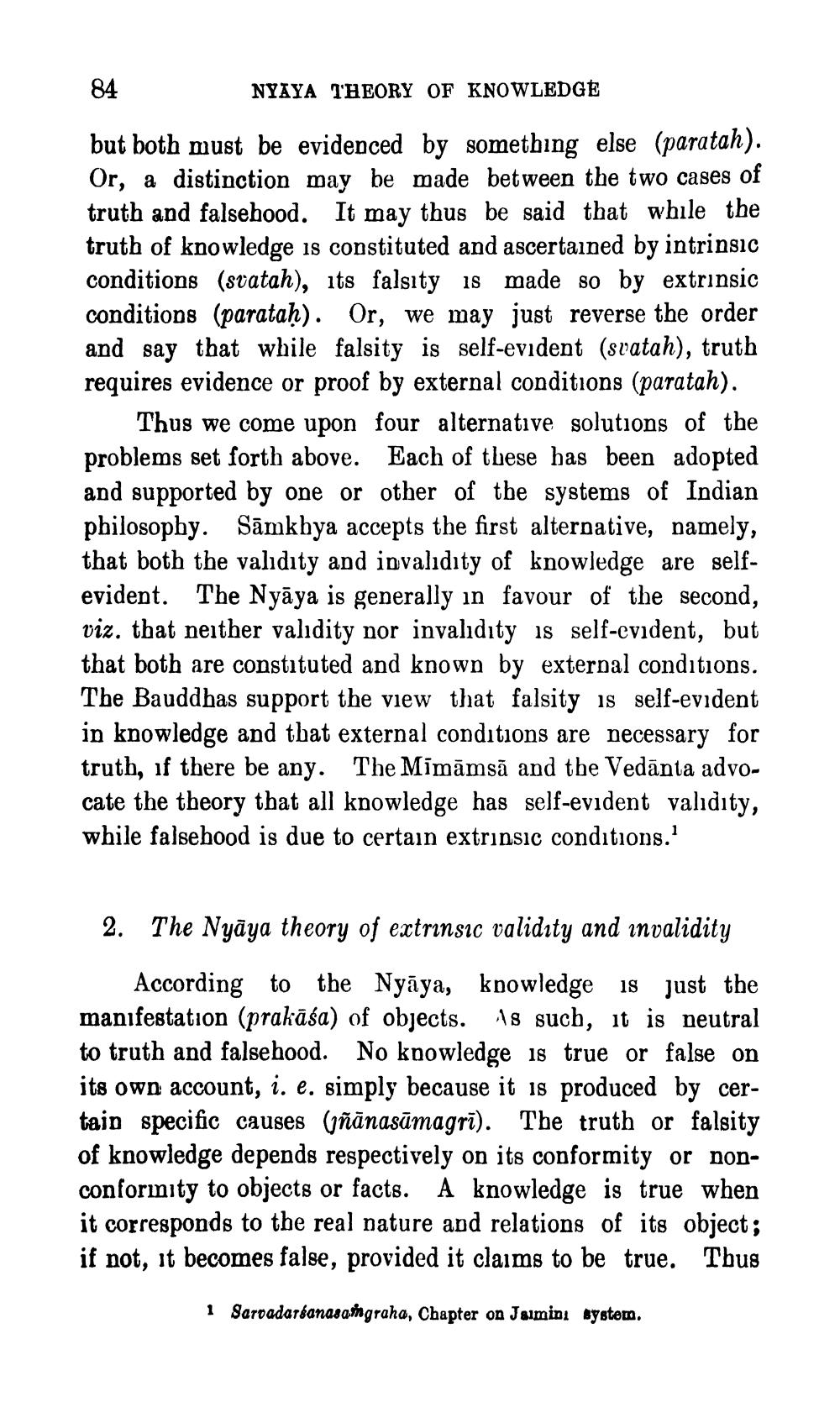________________
84
NYAYA THEORY OF KNOWLEDGE
but both must be evidenced by something else (paratah). Or, a distinction may be made between the two cases of truth and falsehood. It may thus be said that while the truth of knowledge is constituted and ascertained by intrinsic conditions (svatah), its falsity is made so by extrinsic conditions (parataḥ). Or, we may just reverse the order and say that while falsity is self-evident (svatah), truth requires evidence or proof by external conditions (paratah).
Thus we come upon four alternative solutions of the problems set forth above. Each of these has been adopted and supported by one or other of the systems of Indian philosophy. Samkhya accepts the first alternative, namely, that both the validity and invalidity of knowledge are selfevident. The Nyāya is generally in favour of the second, viz. that neither validity nor invalidity is self-evident, but that both are constituted and known by external conditions. The Bauddhas support the view that falsity is self-evident in knowledge and that external conditions are necessary for truth, if there be any. The Mimamsã and the Vedanta advocate the theory that all knowledge has self-evident validity, while falsehood is due to certain extrinsic conditions.1
2. The Nyāya theory of extrinsic validity and invalidity
According to the Nyaya, knowledge is just the manifestation (prakāśa) of objects. As such, it is neutral to truth and falsehood. No knowledge is true or false on its own account, i. e. simply because it is produced by certain specific causes (jñānasāmagri). The truth or falsity of knowledge depends respectively on its conformity or nonconformity to objects or facts. A knowledge is true when it corresponds to the real nature and relations of its object; if not, it becomes false, provided it claims to be true. Thus
1 Sarvadarsanasamgraha, Chapter on Jaimini system.




